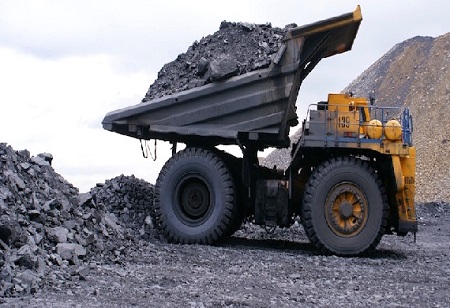The Indian Institute of Technology (IIT) Kanpur has made a significant contribution to the field of transportation with its innovative compressed air-based pipeline system for coal and mineral transportation.
Developed by Prof Bishakh Bhattacharya and research scientists Kanhaiya Lal Chaurasia and Yashasvi Sinha of the Department of Mechanical Engineering, IIT Kanpur, the system promises to revolutionize the way coal and minerals are transported.
According to an official release, the traditional mode of transportation has always been a challenge, with issues like material loss, uncertainty in delivery time, and air pollution.
The new cargo-based hyperloop system addresses these challenges effectively and promises to reduce air pollution, material loss, and travel time significantly.
Prof. Abhay Karandikar, Director of IIT Kanpur,
said, "This system is a game-changer in the field of transportation. With its dual advantage of reduced energy consumption and simultaneous pipeline monitoring, this technology will greatly improve production and productivity from underground and open-cast mining. The reduced number of trucks and railway wagons will also reduce the pressure on congested freight-carrying tracks and roadways."
The system is designed to transport coal or slurry from one point to another with compressed air as its energy source. The robot travels at approximately 120 km/hr and can transport the loaded block to the designated receiving/unloading sub-section continuously. This will be a continuous process, and there could be more than one robotic vehicle operating in series depending on the workload and requirement.
Even parallel pipeline loops can increase transportation efficiency significantly. Each module of the vehicle is connected to the adjacent modules through ball and socket joints. This provides connectivity as well as maneuverability to the system which enables the robot to pass through complex bends present in the pipeline network.
The system also has an accurate, reliable, and continuous vehicle/robot positioning system. In order to achieve such positioning performance in extended GPS-denied environments such as tunnels/pipelines, the system deploys a hybrid multi-sensor fusion strategy for wagon positioning in pipelines.
The system may have a power consumption of approximately 107 KW with a delivery rate of 5.6 T/min/km corresponding to a pipe of just 40 inches.
The system, developed at the Smart Materials, Structures and Systems (SMSS) Lab of IIT Kanpur, has already undergone a successful demonstration at the UP Global Investors Summit 2023 and has received positive feedback from experts in the field.
